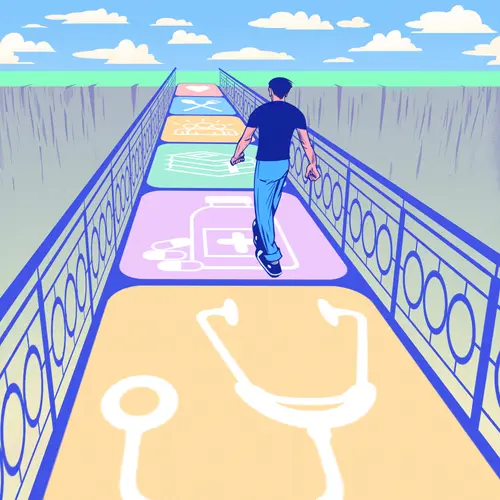
In the last few decades, children's action figures, like GI Joe and Superman, have become more muscular. And more recently, Facebook, Instagram, and other social media have become places that celebrate these extremes, via images of shredded celebrities and influencers.
It appears to have had an impact. In a 2019 study that included 7,000 young American men ages 18 to 24, more than one in five of them reported eating problems related to their desire for a muscle-bound body. To bulk up, they overate and took anabolic steroids or dietary supplements.
"We encourage people to be physically active and watch what they eat," says lead author Jason Nagata, MD, MSc, a pediatrician at the University of California San Francisco, who cares for teens and young adults with eating disorders. "But there's a subset of people who take those goals and behaviors to extremes, and it starts to take over their lives."
In addition to troubled eating patterns, obsessing over body image can lead to a condition called muscle dysmorphia, which convinces you that you're neither as muscular nor as lean as you believe you should be.
"Not being able to attain these ideals causes a lot of distress and withdrawal from activities one enjoys in pursuit of this body image," says Nagata. "Some people may no longer hang out with their friends because they're at the gym all day."
In addition to psychological harm, you risk damaging the body you want to perfect. Those hours in the gym require food for fuel, but if you don't eat right to keep up with the energy you've expended, your heart may slow and your blood pressure could drop. Both are dangerous. You also may compromise your bone health.
Anabolic steroids cause problems, too. They can stunt growth and, over time, may lead to heart disease, kidney problems, and liver damage, Nagata says.
Both boys and men have trouble talking about eating disorders, in part because they're more commonly associated with girls and women. If you're worried about a loved one, Nagata says you can watch for signs, like sudden weight gain and increased time in front of the mirror or on the scale, as well as spending less time with friends. "These behaviors cause a lot of distress," says Nagata. "You should seek a therapist or counselor trained to address eating disorders."
Nagata advises men who want to build muscle to focus their goals on sustainable eating and exercise habits that you can maintain long term -- and pay less attention to how you look than to how you feel. His message for the new year: "Reframe your regimen to health-oriented goals versus physical appearance."
Ask Your Doctor
Are the dietary supplements I take safe?
That's a big unknown, because they are not regulated like drugs by the FDA and, in most cases, their health consequences have not been well studied.
How can I start exercising safely?
Set realistic, incremental goals rather than going from no physical activity to spending three hours at the gym every day.
How much exercise is too much?
Aim for 150 minutes of moderate exercise each week. More is fine, too, but if it starts to feel like a duty or obsession, ease off.
How will I know if I have a problem?
Warning signs include a preoccupation or obsession with personal appearance, body size, weight, food, or exercise in ways that worsen your quality of life.
Find more articles, browse back issues, and read the current issue of WebMD Magazine.

